Ditapis dengan
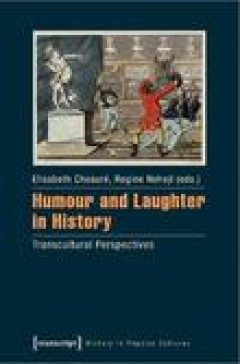
Humour and laughter in history transcultural perspectives
Humour can be used as a »weapon« or as a means of coping with problematic historical events, especially in times of war and crisis. The book presents examples from different cultures (Russia, Europe, USA), from different historical epochs (from the Napoleonic era up to the current time) and from different medias (caricature, journalism, film). By looking at the individual cases it becomes pos…
- Edisi
- -
- ISBN/ISSN
- 9783837628586
- Deskripsi Fisik
- 137 p.; 22 cm.
- Judul Seri
- -
- No. Panggil
- 909 HUM h

Indic manuscript cultures through the ages. material, textual, and historical…
This collection of essays explores the history of the book in pre-modern South Asia looking at the production, circulation, fruition and preservation of manuscripts in different areas and across time. Edited by the team of the Cambridge-based Sanskrit Manuscripts Project and including contributions of the researchers who collaborated with it, it covers a wide range of topics related to South As…
- Edisi
- -
- ISBN/ISSN
- 9783110543100
- Deskripsi Fisik
- xviii, 783 p.; 22 cm.
- Judul Seri
- -
- No. Panggil
- 091 IND i
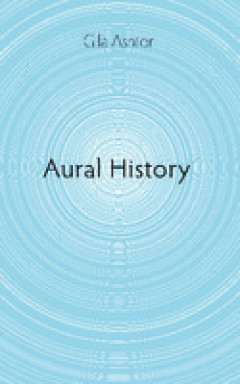
Aural history
Aural History is an anti-memoir memoir of encountering devastating grief that uses experimental storytelling to recreate the winding, fractured path of loss and transformation.Written by a thirty-something psychotherapist and queer theorist, Aural History is structured as a sequence of three sections that each use different narrative styles to represent a distinctive stage in the protagonist’…
- Edisi
- -
- ISBN/ISSN
- 9781950192670
- Deskripsi Fisik
- 324 p.; 22 cm.
- Judul Seri
- -
- No. Panggil
- 155.413 ASh a
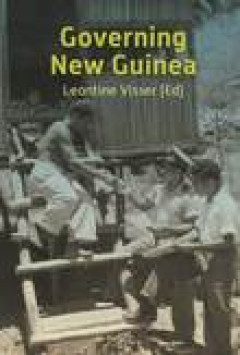
Governing New Guinea; an oral history of Papuan administrators, 1950-1990
This is the first time that indigenous Papuan administrators share with an international public their experiences governing their country. These administrators were the brokers of development. After graduating from the School for Indigenous Administrators (OSIBA) they served in the Dutch administration until 1962. The period 1962-1969 stands out as turbulent and dangerous, and for many curtaile…
- Edisi
- -
- ISBN/ISSN
- 9789067183932
- Deskripsi Fisik
- x, 358 p.; 22 cm.
- Judul Seri
- -
- No. Panggil
- 995.304 GOV g
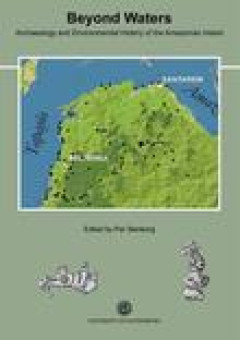
Beyond waters:archaeology and environmental history of the Amazonian Inland
This book is one of the outcomes of the project Cultivated Wilderness: Socio-economic development and environmental change in pre-Columbian Amazonia (http://www.cultivated-wilderness.org/). The project has particularly focused on the previously relatively unknown prehistory of the Amazonian hinterland. Our work has revealed that pre-Columbian settlements in the Santarém region in the State of …
- Edisi
- -
- ISBN/ISSN
- 9789185245666
- Deskripsi Fisik
- 129 p.; 22 cm.
- Judul Seri
- -
- No. Panggil
- 981.1 BEY b

The Latin New Testament :a guide to its early history, texts, and manuscripts
This book provides a comprehensive introduction to the history and development of the Latin New Testament and a user’s guide to the resources available for research and further study. The first five chapters offer a new historical synthesis, bringing together evidence from Christian authors and biblical manuscripts from earliest times to the late Middle Ages. Each witness is considered in its…
- Edisi
- -
- ISBN/ISSN
- 9780198744733
- Deskripsi Fisik
- XVII, 366 p.
- Judul Seri
- -
- No. Panggil
- 225.5209 HOU l
Past, present and future of historical information science
This book evaluates the results of two decades of research in ‘history and computing’. In spite of the fact that a lot has been accomplished, the report indicates critical places for improvement. Many historians and other humanities scholars seem satisfied with standard office tools, which do not always suit their complex sources and research questions. While more and more archival sources …
- Edisi
- -
- ISBN/ISSN
- 9069844133
- Deskripsi Fisik
- 129p.: ill.
- Judul Seri
- -
- No. Panggil
- 020.9 BOO p
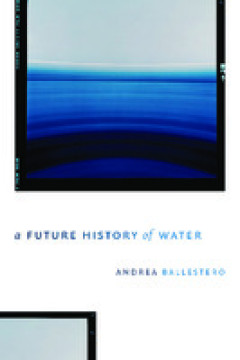
future history of water
Based on fieldwork among state officials, NGOs, politicians, and activists in Costa Rica and Brazil, A Future History of Water traces the unspectacular work necessary to make water access a human right and a human right something different from a commodity. Andrea Ballestero shows how these ephemeral distinctions are made through four technolegal devices—formula, index, list and pact. She arg…
- Edisi
- -
- ISBN/ISSN
- 9781478004516
- Deskripsi Fisik
- xvii, 232p.: ill.
- Judul Seri
- -
- No. Panggil
- 333.339 BAL f
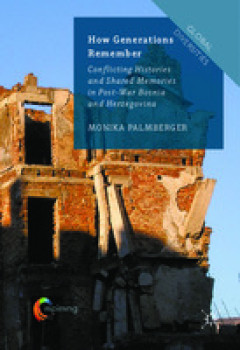
How generations remember:conflicting histories and shared memories in post-wa…
This book provides a profound insight into post-war Mostar, and the memories of three generations of this Bosnian-Herzegovinian city. Drawing on several years of ethnographic fieldwork, it offers a vivid account of how personal and collective memories are utterly intertwined, and how memories across the generations are reimagined and ‘rewritten’ following great socio-political change. Focus…
- Edisi
- -
- ISBN/ISSN
- 9781137450630
- Deskripsi Fisik
- 1 electronic resource (xvii, 254 pages )
- Judul Seri
- -
- No. Panggil
- 301 PAL h

Anti-vivisection and the profession of medicine in Britain :a social history
This book explores the social history of the anti-vivisection movement in Britain from its nineteenth-century beginnings until the 1960s. It discusses the ethical principles that inspired the movement and the socio-political background that explains its rise and fall. Opposition to vivisection began when medical practitioners complained it was contrary to the compassionate ethos of their profes…
- Edisi
- -
- ISBN/ISSN
- 9781137556974
- Deskripsi Fisik
- xxi, 217p. : ill.
- Judul Seri
- -
- No. Panggil
- 179.4 BAT a

One hundred years of chemical warfare:research, deployment, consequences
On April 22, 1915, the German military released 150 tons of chlorine gas at Ypres, Belgium. Carried by a long-awaited wind, the chlorine cloud passed within a few minutes through the British and French trenches, leaving behind at least 1,000 dead and 4,000 injured. This chemical attack, which amounted to the first use of a weapon of mass destruction, marks a turning point in world history. The …
- Edisi
- -
- ISBN/ISSN
- 9783319516646
- Deskripsi Fisik
- xi, 408p. : ill.
- Judul Seri
- -
- No. Panggil
- 355 ONE o

The Second World War in the Twenty-First-Century Museum :from narrative, memo…
The Second World War is omnipresent in contemporary memory debates. As the war fades from living memory, this study is the first to systematically analyze how Second World War museums allow prototypical visitors to comprehend and experience the past. It analyzes twelve permanent exhibitions in Europe and North America – including the Bundeswehr Military History Museum in Dresden, the Museum o…
- Edisi
- -
- ISBN/ISSN
- 9783110664416
- Deskripsi Fisik
- XIV, 354 p.
- Judul Seri
- -
- No. Panggil
- 943 JAE s
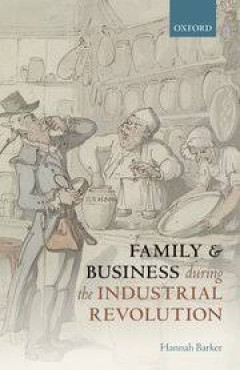
Family and business during the Industrial Revolution
Small businesses were at the heart of the economic growth and social transformation that characterized the Industrial Revolution in Britain. In towns across north-west England, shops and workshops dominated the streetscape, and helped to satisfy an increasing desire for consumer goods. Yet, despite their significance, we know surprisingly little about these firms and the people who ran them, fo…
- Edisi
- -
- ISBN/ISSN
- 9780198786023
- Deskripsi Fisik
- viii, 262 pages : illustrations ; 24 cm
- Judul Seri
- -
- No. Panggil
- 338.09034 BAR f

Long history, deep time. Deepening histories of place
The vast shape-shifting continent of Australia enables us to take a long view of history. We consider ways to cross the great divide between the deep past and the present. Australia’s human past is not a short past, so we need to enlarge the scale and scope of history beyond 1788. In ways not so distant, these deeper times happened in the same places where we walk today. Yet, they were not th…
- Edisi
- -
- ISBN/ISSN
- 9781925022520
- Deskripsi Fisik
- 241 p.; 22 cm.
- Judul Seri
- -
- No. Panggil
- 994.0049915 LON l
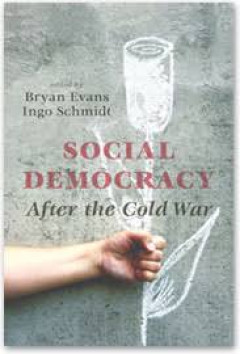
Social democracy after the cold war
Despite the market triumphalism that greeted the end of the Cold War, the collapse of the Soviet empire seemed initially to herald new possibilities for social democracy. In the 1990s, with a new era of peace and economic prosperity apparently imminent, people discontented with the realities of global capitalism swept social democrats into power in many Western countries. The resurgence was, ho…
- Edisi
- -
- ISBN/ISSN
- 9781926836881
- Deskripsi Fisik
- 332 p. ; 23 cm.
- Judul Seri
- -
- No. Panggil
- 300 SCH s

A People's history of modern Europe
From the monarchical terror of the Middle Ages to the mangled Europe of the Twenty-first Century, A People's History of Modern Europe tracks the history of the continent through the deeds of those whom mainstream history tries to forget. Europe provided the perfect conditions for a great number of political revolutions from below. The German peasant wars of Thomas Müntzer, the bourgeoisie revo…
- Edisi
- -
- ISBN/ISSN
- 9781783717675
- Deskripsi Fisik
- 289 p.; 22 cm.
- Judul Seri
- -
- No. Panggil
- 909.08 APE p

Sergei M. Eisenstein:notes for a general history of cinema
One of the iconic figures of the twentieth-century cinema, Sergei Eisenstein is best known as the director of The Battleship Potemkin, Alexander Nevskii and Ivan the Terrible. His craft as director and film editor left a distinct mark on such key figures of the Western cinema as Nicolas Roeg, Francis Ford Coppola, Sam Peckinpah and Akiro Kurosawa.This comprehensive volume of Eisenstein’s writ…
- Edisi
- -
- ISBN/ISSN
- 9789089648440
- Deskripsi Fisik
- -
- Judul Seri
- -
- No. Panggil
- 791.430233092 SER s

Colonial Australian fiction :characterTypes, social formationsand the colonia…
Over the course of the 19th century a remarkable array of types appeared in Australian literature: the swagman, the larrikin, the colonial detective, the bushranger, the currency lass”, the squatter, and more. Some had a powerful influence on the colonies’ developing sense of identity; others were more ephemeral. But all had a role to play in shaping and reflecting the social and economic c…
- Edisi
- -
- ISBN/ISSN
- 9781743324615
- Deskripsi Fisik
- -
- Judul Seri
- -
- No. Panggil
- 820.9994 GEL c

The Old English translation of Bede's Historia Ecclesiastica Gentis Anglorum …
Did King Alfred the Great commission the Old English translation of Bede’s Historia Ecclesiastica Gentis Anglorum, probably the masterpiece of medieval Anglo-Latin Literature, as part of his famous program of translation to educate the Anglo-Saxons? Was the Old English Historia, by any chance, a political and religious manifesto for the emerging ‘Kingdom of the Anglo-Saxons’? Do we deal w…
- Edisi
- -
- ISBN/ISSN
- 978386395189
- Deskripsi Fisik
- 411 p.
- Judul Seri
- -
- No. Panggil
- 274.2 LEM o
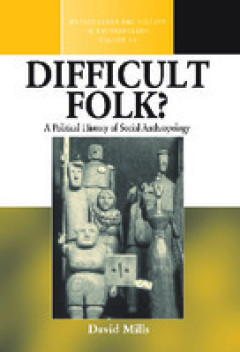
Difficult folk?:a political history of social anthropology
How should we tell the histories of academic disciplines? All too often, the political and institutional dimensions of knowledge production are lost beneath the intellectual debates. This book redresses the balance. Written in a narrative style and drawing on archival sources and oral histories, it depicts the complex pattern of personal and administrative relationships that shape scholarly wor…
- Edisi
- -
- ISBN/ISSN
- 9781785336638
- Deskripsi Fisik
- x, 222p.
- Judul Seri
- -
- No. Panggil
- 306.20941 MIL d
 Karya Umum
Karya Umum  Filsafat
Filsafat  Agama
Agama  Ilmu-ilmu Sosial
Ilmu-ilmu Sosial  Bahasa
Bahasa  Ilmu-ilmu Murni
Ilmu-ilmu Murni  Ilmu-ilmu Terapan
Ilmu-ilmu Terapan  Kesenian, Hiburan, dan Olahraga
Kesenian, Hiburan, dan Olahraga  Kesusastraan
Kesusastraan  Geografi dan Sejarah
Geografi dan Sejarah